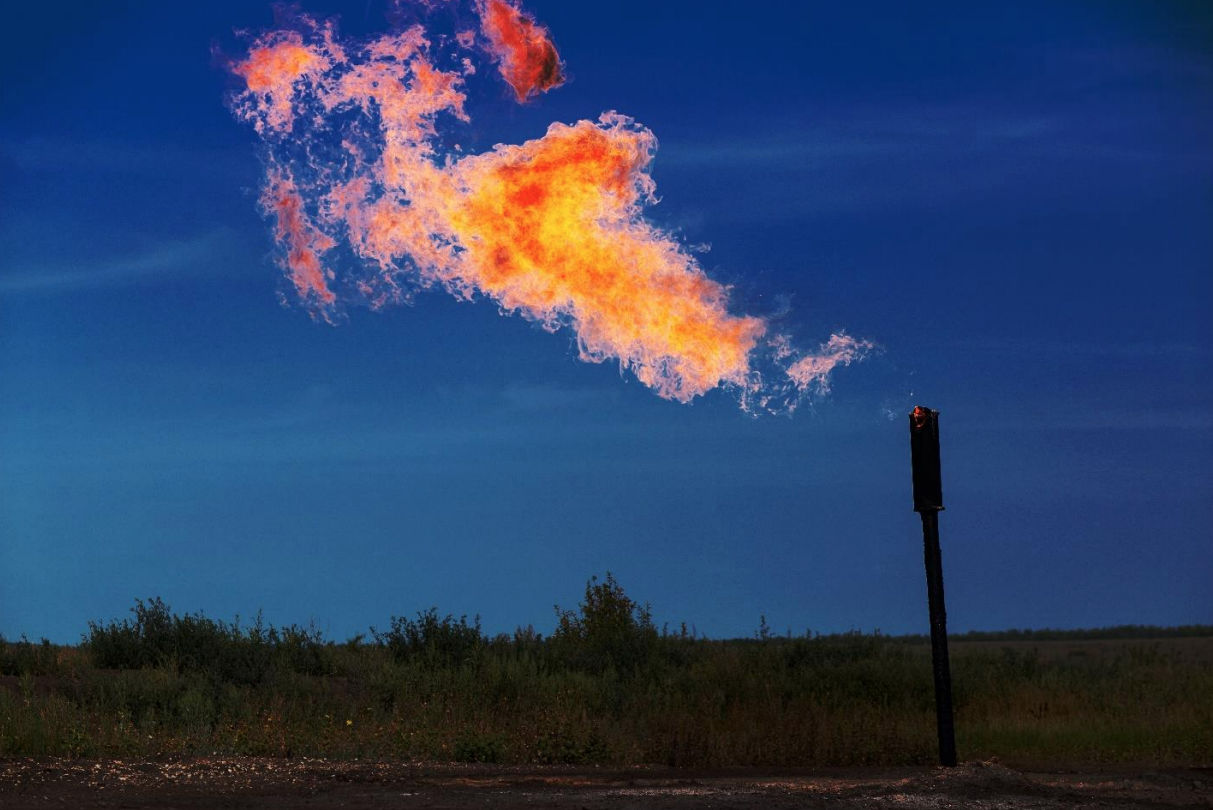
Over the last six months, there has been unprecedented attention to the equally unprecedented amount of flaring, venting, and fugitive emissions of methane- the main component of gas. It is not only a severe threat to public health, it is also cooking our climate. According to the Intergovernmental Panel on Climate Change (IPCC), methane over its first 20 years in our atmosphere has 87 times the impact on climate change that carbon dioxide (CO2) does.
In Texas, methane emissions are created by the oil and gas industry and regulated by two agencies: the Railroad Commission of Texas (RRC) and the Texas Commission on Environmental Quality (TCEQ). It’s complicated, but the RRC of Texas is the entity that grants permits to drill in places like South Texas or the Permian Basin in West Texas. They are also the entity that can grant “exceptions,” allowing companies to flare or in some cases even vent off methane. This is, in most cases, when a company drilling for oil chooses not to capture the methane that’s released while usually “fracking” (aka, hydraulic fracturing). Over the last 10 years, the RRC has granted some 30,000 exceptions to its general prohibition on flaring and venting, which roughly corresponds to when fracking took off around 2008 in Texas.
The TCEQ for its part, is charged with protecting the air quality of the state, and it does so by granting different types of air quality permitsIt does so through a series of regulations that can range from a simple registration process for smaller entities known as “Permit by Rule,” or PBRs, General Operating Permits for larger facilities, Standard Permits, and Individual Permits. Essentially, these permits grant industry permission to legally release certain amounts of different kinds of pollution.
The state is not doing enough to reduce methane emissions. We can’t cover it all here, but keep an eye out for the release of a white paper later that will discuss these issues more. We’ll be talking about the white paper at our upcoming town hall on November 19th. Register in advance for the webinar here!
But it’s been getting worse, both in terms of the number of permits and the volume of methane flared, venting or released through leaky valves, blow-outs or storage tanks. Indeed, in 2019, the Railroad Commission granted some 7,000 exceptions in all. The impact is visible: driving down the highway at night, you can see the thousands of flares lighting up the otherwise beautiful West Texas sky, polluting the air with toxic greenhouse gases. Folks in the Permian and across Texas are now calling on the RRC do something about it- and are zeroing in on the election of one of three election RRC commissioners (see check out turntexasgreen.org for our endorsements to see our preferred candidate).
The RRC has been discussing tackling flaring for some time. Big Oil and Gas has clearly been feeling the heat, too. However, rather than taking steps to eliminate the practice of flaring and venting except in emergency situations, the RRC has only proposed taking a very weak first step to improve emission data collection and make the granting of “exceptions” a bit more demanding. We expected the Commission to take action by now on this limited step, but they have instead been delaying even considering their weak proposal until after the election.
In other words, there has been no reduction in flaring or venting of methane.
What are we doing about it? To start, we are gathering input from our members and supporters and calling on you to do two things.
First, take action by telling Chairperson Christi Craddick that we need them to do more than improve data collection. Collecting data is simply not enough if the RRC does not intend to use this data to enforce pollution regulations and actually reduce methane emissions.
Second, join us and some experts from Texas and New Mexico for a discussion on what the RRC and TCEQ should do to reduce and eventually eliminate flaring, venting and methane emissions that are actively cooking our planet and impacting front-line communities with pollution in the middle of the COVID-19 pandemic.
From this online action, you can tell the Railroad Commission what they should do, and you can sign up for the upcoming webinar, which will be held Thursday, November 19th at 6 PM.